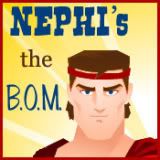

Letting Go
From Music and the Spoken Word
Delivered by: Lloyd D. Newell • Program 4230
It's been said that "harboring resentment is like taking poison and then waiting for the other person to die." Keeping a mental list of those who have offended or hurt us serves no good purpose. When we allow ourselves to be resentful, we only harm ourselves.
A middle-aged man learned this much too late in life. In his young adulthood, someone close to him had hurt him deeply. He carried the hurt, which festered into a grudge, for several decades. He spent years accumulating his own sort of "enemies list," remembering others who he believed had done him wrong--most of them unknowingly or at least unintentionally. It wasn't until much later, his heart now softened by age and more of life's ups and downs, that he realized how much he had harmed himself with his own grudges. The poison of resentment held him back from experiencing some of life's joys.
Very often the things that divide people--words spoken in haste, criticisms, accusations, or false assumptions--can lead to bitterness and animosity. And once divided, the people may never come together again.
The solution, of course, is to let the bad feelings go. We all know it intuitively: learning to let go of resentments, whether big or little, can open our heart to love and peace, to rewarding and lasting relationships. Refusing to hold on to hurt feelings leaves more energy for building bonds with those we love. Rejecting the inclination to itemize hurts, slights, and offenses allows for more joy in living.
Consider the lives disrupted, the peace disturbed, the happiness destroyed by resentment. Now might be a good time to clear the heart of past hurts, to drop the enemies list, to let it go.
23 minutes ago









No comments:
Post a Comment